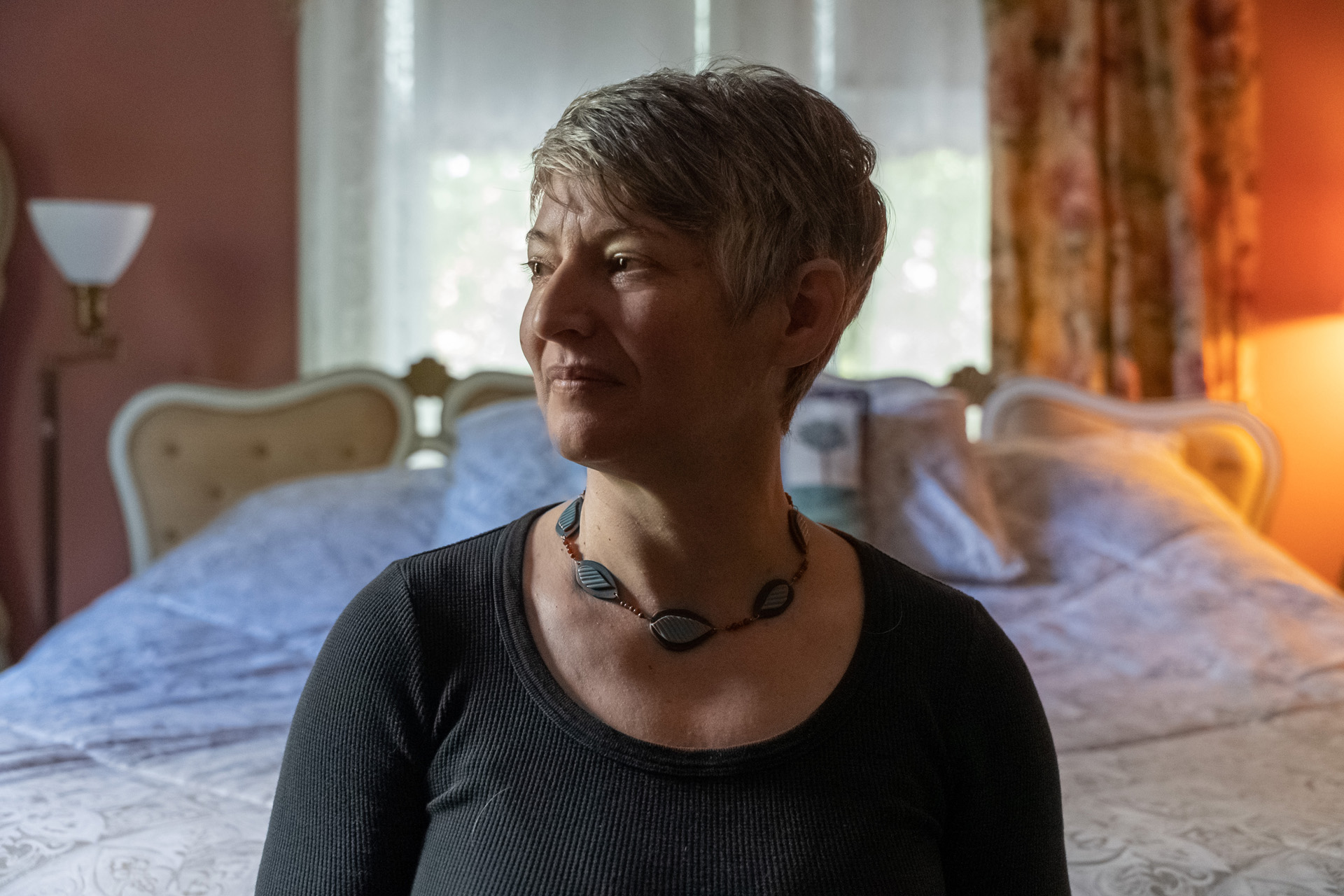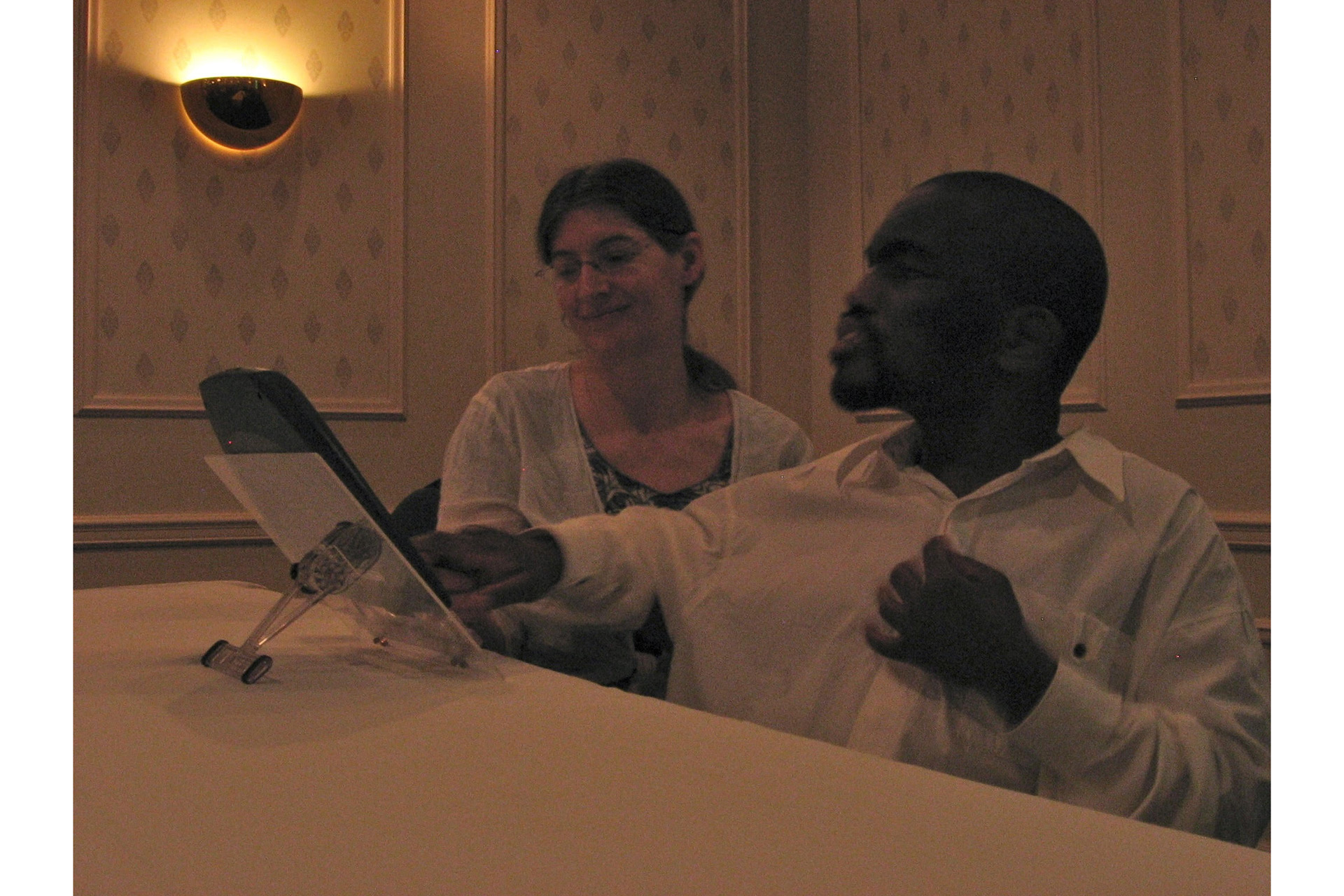
The Unsettling Story Behind Louis Theroux’s Tell Them You Love Me
By
10 months ago
This unnerving documentary has viewers gripped
Back in February 2024, a new documentary from Louis Theroux’s production company Mindhouse aired on Sky Documentaries. It has been available for streaming on NOW in the UK ever since – but it wasn’t until it landed on Netflix in the US that Tell Them You Love Me started making the headlines, with parallels drawn to Richard Gadd’s Baby Reindeer (which was released in April 2024).
Now Tell Them You Love Me seems to be all documentary fans can talk about – and for good reason. This true story is at once terribly unnerving and incredibly captivating, delving under the skin of a divisive criminal trial. Is this a misunderstood love affair, or a tale of predatory behaviour and sexual assault?
Here’s exactly what to expect from Tell Them You Love Me.
What Is Tell Them You Love Me About?
Tell Them You Love Me explores a controversial relationship between a married female professor, Anna Stubblefield, and a non-verbal Black man with cerebral palsy, Derrick Johnson. What ensued was a high profile criminal trial with complexities surrounding disability and consent – but we’ll get to that below.
When Anna and Derrick first met in 2009, she was a 39-year-old respected academic at Rutgers University Newark and disability rights activist, and the 28-year-old Derrick had round the clock care from his mother Daisy and brother John, and had never spoken a word in his life. During his childhood, medical professionals told Derrick’s family that, as well as his physical disabilities, he was severely cognitively impaired. John, who was a student of Anna’s, approached the professor about his brother’s condition, and she disagreed with the medical professionals’ opinions. According to Anna, she could help Derrick learn to communicate. And when she told John and Daisy this, they were naturally elated.
But Anna’s strategy revolved around a controversial technique called facilitated communication, amounting to training Derrick to overcome his physical impairments so he could use a keyboard with an LED screen to type. On facilitated communication – also known as FC, assisted typing or supported typing – the American Speech-Language-Hearing Association (ASHA) had said ‘There is no scientific evidence of the validity of FC,’ essentially concluding that messages that emerge from FC stem from the facilitator, not the person with the disability.

© Sky UK Limited
Two years later, Anna claimed to have ‘unlocked Derrick’s mind’. Indeed, Derrick could now express complex thoughts, even attending college classes (at Anna’s suggestion) and writing thoughtful essays. Derrick’s mother Daisy was excited by her son’s progress, describing the moment as ‘like the porch light coming on’; she had always wondered what Derrick was thinking about, what his dreams were, whether he was ever in pain.
But Anna had more news to share: over the course of two years working together, she and Derrick had fallen in love, she said. Married at the time, Anna admitted she and Derrick had a consensual sexual relationship. Naturally, alarm bells started ringing for Daisy. Derrick did not have the capacity to engage in physical or emotional intimacy, thought Daisy, so what was going on with Anna? And was Derrick’s miraculous transformation even real? The extent to which Derrick was using the keyboard to communicate wouldn’t have been possible without Anna manipulating his hands – would it?
‘Facilitated communication is definitely, in my view, a flawed methodology, though I believe it can work for some people in some cases,’ producer Theroux says. But is FC to blame for what happened between Anna and Derrick? ‘I think the other culprit is the vanity of presuming we know what is best for someone,’ Theroux adds. ‘Disabled people who are nonverbal or who struggle to speak [are] by definition more vulnerable to misinterpretation, which raises the stakes and makes it all potentially catastrophic.’
Featuring interviews with the people right at the centre of the story – including Anna, Daisy and John along with FC advocate Rosemary Crossley and Dr. Howard Shane, director of Boston Children’s Center for Communication Enhancement – Tell Them You Love Me starts at the beginning, recounting these events before delving into the trial that followed. ‘From the beginning, it was made clear that, to tell this story, we had to present all angles and involve all those who were part of it,’ says co-executive producer Arron Fellows. ‘The film is all the more powerful because of that.’

© Sky UK Limited
What Happened To Anna Stubblefield?
In 2015, Anna was found guilty on two counts of first degree aggravated sexual assault and sentenced to 12 years in prison. But two years later, Anna’s appeal was granted and the conviction was revoked. At this point, Anna accepted a plea deal for a lesser charge rather than have a retrial, and was released from prison after serving two years. She then got a job at a restaurant, but was let go within a year due to publicity surrounding her case.
What Happened To Derrick?
At the end of Tell Them You Love Me, we revisit Derrick at his home in New Jersey where he lives with his mother Daisy. Director Nick August-Perna and producer Louis Theroux were passionate about this decision to revisit Derrick. ‘It was important to remind viewers of who the central character in the film is, and to tune out all the other voices for a moment,’ says Theroux. ‘The bigger picture is, he’s healthy, he’s safe, he’s provided for, he’s loved, but we’re also maybe wondering how much more he may be capable of, how much more life might have to offer him were his circumstances different.’
How Is Louis Theroux Involved?
Tell Them You Love Me was produced by Louis Theroux’s company Mindhouse. On the project, he said: ‘When I started Mindhouse four years ago, this was exactly the kind of morally complex film I’d hoped we might be involved in making. It deals with some of the most sensitive and difficult themes in the culture but does so in a way that is intelligent and forensic and never sensationalist. Tell Them You Love Me is also just a powerful story which millions of people will enjoy watching and be totally engaged by. Nick [the director] is a terrific film-maker and it’s a privilege to have been able to work with him and his team.’
Where Is It Streaming?
Tell Them You Love Me is streaming on NOW in the UK and on Netflix in the US.



